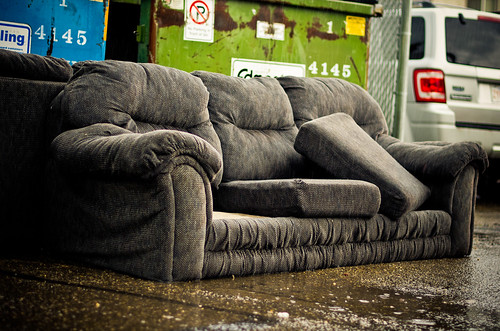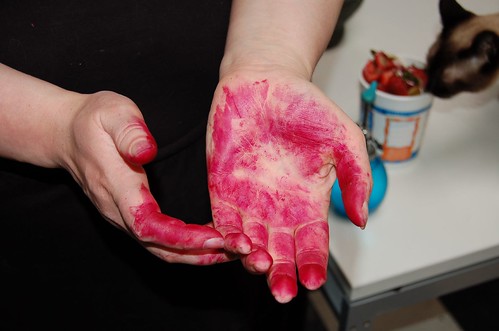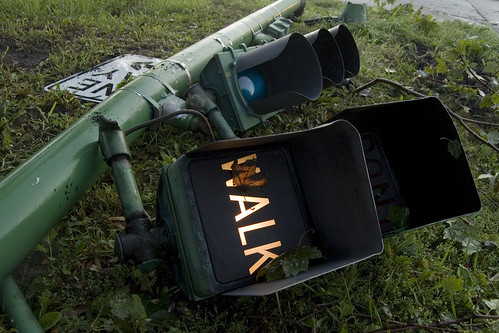To this day, I get rewrite offers where they say: ‘We feel this script needs work with character, dialogue, plot and tone,’ and when you ask what’s left, they say: ‘Well, the typing is very good.’
John Sayles
Zero-Based Budgeting
Not to be confused with zero budgeting, which is not a good thing, whether it’s because you simply don’t have a budget, or because you have a lack of anything to budget.
Zero-based budgeting – a concept I recently encountered – is the idea that each year’s budget starts from zero, and everything has to be justified. This is different to the usual sort of budgeting where you get as much as you got last year, whether you needed it or not (which explains a lot about government departments and their spending habits).
Jack Lew said “The budget is not just a collection of numbers, but an expression of our values and aspirations.” The same could be said of our belongings: they reveal a lot about who we are, who we think we are, who we would like other people to think we are, and who we would like to be.
What if we applied the concept of zero-budgeting to our stuff? Imagine emptying everything out of your house – including the furniture – and only carrying back in what you felt was worth the effort. Of course, many of us have so much stuff that this would be impractical, as we wouldn’t get through moving it out, sorting it out, and moving things back in before the day’s end.
Although now I think about it, the looming realization that anything you don’t move back in before bedtime will be prey to anyone who wants it might perhaps focus the mind in a wonderful way.
I admit, I’m not planning to do this myself. For one thing, the weather is hardly conducive to having everything outside. Yesterday it rained ice off and on all day. But I do sometimes sit down and wonder to myself what I would take and what I would leave, if I had to move to the other side of the world.
Moving house is basically the same as taking out all your stuff and putting it back, it’s just putting it back in a different house, and generally with an expensive interlude. It is remarkable how your enthusiasm for something can wane when it’s actually going to cost you something.
I stare at my possessions, drawing fine distinctions of worth and value. This teapot, perhaps, but not this one. These books, but not those. Looking at life this way has made me realize that I could actually do without a lot of the stuff that I have. Quite happily. So why not start now, avoid the rush?
Take bedding, for example. When the poet spoke of “only half a bed,” I’m fairly certain he didn’t mean the rest to be covered with pillows, cushions, bolsters, and whatever other unnatural forms of padding have snuck in there.
Last month I went through the linen cupboard. We now have two sets of winter sheets and two sets of summer sheets for our bed and one set of each for the guest bed. Two blankets and a duvet (with a cover or two) for each bed as well. A sufficiency of pillowcases, allowing 1-2 pillows per head. What more could one need?
The June-prune list is therefore rather linen-heavy:
one queen-size duvet cover with matching pillowcases
three sheets
two pillowcases
a tablecloth
five CDs
one bath cushion shaped like a duck (alas, poor ducky, he grew mildewed)
and two mismatched glasses.
I also (and not without a pang) pruned out the Historical Sew Monthly – a paring of time, not space.
After all, 2015 was to be my Year of Finishing Things, not starting them. I haven’t finished many of the projects I had underway at the start of the year, but I have certainly made progress toward that goal, and the year is far from over.
One thing I did finish was the extending rewrite of Dead Man Talking, a stage comedy/farce which was originally a 20-30 minute bibelot and is now what I believe the Germans call “abendfüllend” i.e. evening-filling. I was able to put back in all the complexities of plot I had to leave out when it was a short play, and I think I am justified in saying that the plot is now a dastardly and cunning one.
Of course, it still wants some rewrites before I send it on its way, but I am fairly pleased with where it is at present. I shall put it aside to simmer gently while I return to the speculative fiction work I first-drafted last year. Speculative fiction is a much better name for it than fantasy, I think – fantasy suggests that everything goes exactly the way you want it to, which couldn’t be further from the truth.
But first, I am rearranging the study/library/writing room – yes, I know, I’m spoiled – and doing a bit of pruning in there while I’m at it. Mostly rubbish and recycling, so unlikely to find its way onto the July List.
What’s up with you? Pruning? Budgeting? Finishing things, or starting over? Always happy to hear from you!
The Seven Lessons of the Week
And I thought last week was rough!
It’s the middle of Saturday and I’m still short 1800 words. I don’t know if I’ll be able to make that up (in both senses of the word) in just one day.
But I’ve learned from this week, hard as it has been to fall so short.
Lesson 1: don’t try to cook something new the night you’re supposed to be breaking the back of the week’s word-count. I got beat by the beets (and they dyed my hands pink).
Lesson 2: when ‘persuading’ a catweasel to release the bird in his mouth, wear gauntlets. Otherwise he may plug a bit of bird-feather into your hand and the wound will become infected, lessening usefulness of hand. (Supplementary note: make sure all pieces of now-deceased bird are removed from hand wound, or pain and swelling will be ongoing.)
Lesson 3: storms happen (literally and figuratively). If you need to spend extra time in the morning figuring out what you’re going to wear when walking to work in 200 kph winds (that’s 125 mph for the imperialists), take the time.
Lesson 4: know where you’re going. Roughly. I get bored if it’s all nailed down, but it turns out I can’t pull stuff out of the air for any length of time. I spent my two writing mornings this week trying to nut out some dramatic needs for the characters – once I know why characters do things, it’s easier to figure out what they’re going to do.
Lesson 5: it’s just numbers. You can’t let them scare you. Dig down deep, find your motivation, and write. Remind yourself why this story should be told. Then tell it, as best you can. No one else will tell it for you.
Lesson 6: when you don’t know what happens next and it all seems to be palling on you, throw in something unexpected. This was part of my I Will column.
Lesson 7: There’s only one way to do it. Pen in hand…













